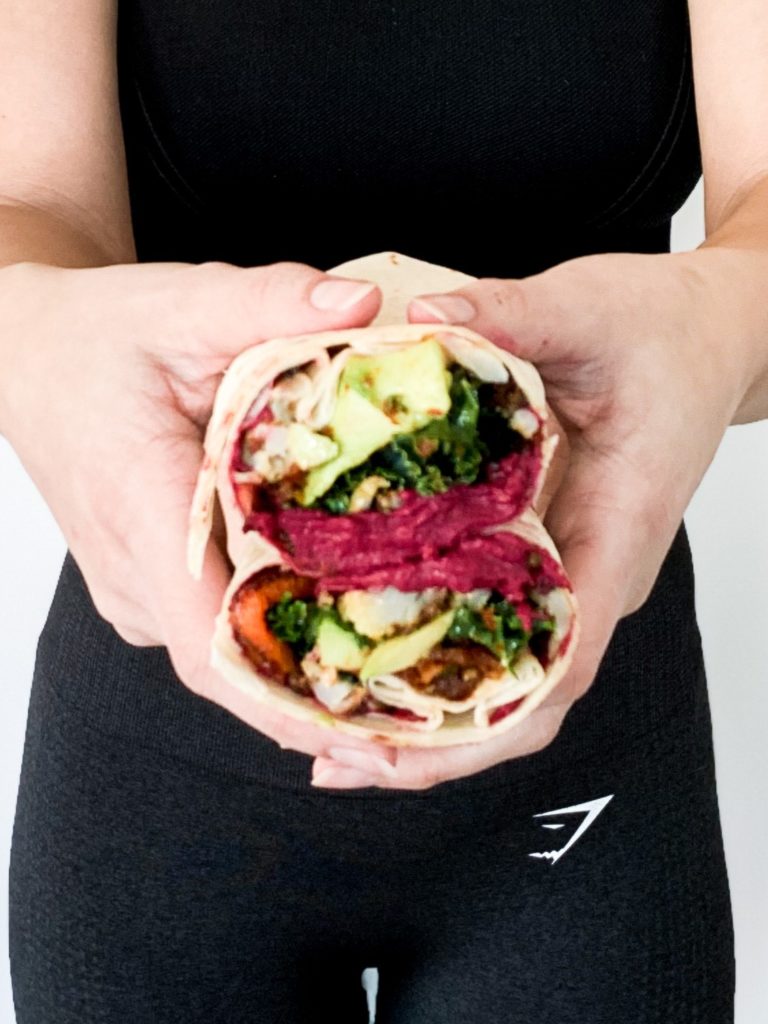
Intermittent fasting (IF) is currently one of the world’s most popular health and fitness trends and quite frankly the term itself sounds a little scary.
People are using this method to lose weight, improve their health and simplify their lifestyles.
So what is Intermittent Fasting (IF)?
IF is an eating pattern that focuses on cycles between periods of fasting and periods of eating. This allows your body to remove toxins, waste and fat cells. The intermittent portion of this cycle means that when you follow an eat-stop-eat plan, your body will go into a fasting or fat-burning mode.
There are several different ways to fast. You can fast for as short as a 6 hour window in the middle of the day to 16 hour fasts or fasting for 24 hours twice per week. The most popular fasting period is the 16/8 where you fast for 16 hours and have an 8 hour eating window during the day.

How does it work and why should women follow a different approach than men?
Women are more prone to experience a hormonal imbalance if this is done incorrectly and this is not something you want when following this approach. The best way to start IF is when you’ve already been eating clean and healthy (no greasy late night binges beforehand). When your body has already adapted to a healthy balanced diet it’s much easier to enter a fast since you will be burning healthy fats, proteins and vegetables for fuel instead of trying to burn carbs and sugars, making sure you are truly experiencing all the amazing benefits without sacrificing your health.
**We are not trying to push IF on everyone but simply trying to explain some of the benefits we have seen from this eating pattern and educating some of our readers

Here’s what a 6 hour fast looks like:
Eat: Your first meal of the day will be around 11:30am. You want to try to keep your body in fasting mode, as if you were asleep. Try to keep your breakfast nice and light by either having a protein smoothie with healthy fats or a low carb breakfast packed with healthy fats such as avocado and scrambled eggs.
Stop: You should not have any snacks in between breakfast and dinner with the exception of water or tea. It is crucial that during the 6 hour fasting period to avoid snacking in order to benefit from the fast, burn fat and get rid of toxins and waste.
Eat: Around 5:30pm or 6 hours later. It’s time to eat your clean dinner making sure your body ingests enough protein, greens, fiber and healthy fats to give your body energy and making sure it burns clean and healthy ingredients. Some suggestions can be baked salmon with asparagus, chicken and broccoli, steak and a nice green spinach salad with light dressing.
Stop: Once you’ve finished your dinner, you are now entering into your 24 hour fast which is the longest period of your fast but it’s also the easiest since your body is sleeping for the majority of this fast. It’s important to avoid those late night snacks, try to sip on herbal tea or hot water with lemon during the evening when tempted to open the fridge for a snack. The great part is that during a fasting phase, the body will need more rest since its cleansing.
By cycling through periods of eating and periods or not eating (fasting), these eating patterns should cause weight loss as long as you don’t compensate by eating much more during the eating periods.
When you eat, your body will spend the next few hours breaking down all the food you just consumed and use it as energy. During the fasted state, your body doesn’t have access to readily available energy from food so it looks for something else to fuel energy and this is where your body will most likely use fat as energy because it’s the next best thing available and this helps keep your body at optimal fat burning levels.
Weight loss is the most common reason for people to try intermittent fasting. By changing your eating patterns to eat fewer meals, intermittent fasting can lead to an automatic reduction in calorie intake.
Additionally, intermittent fasting changes hormone levels to facilitate weight loss. Your body will adjusts its hormone levels to make stored body fat more accessible. You must keep in mind that the main reason for its success is that intermittent fasting helps you eat fewer calories overall. If you binge and eat massive amounts during your eating periods, you may not lose any weight at all.
What would someone expect? –Recap
To summarize, during the intermittent fasting period, one would expect to lose fat around their mid-section, have an increase in their metabolism, reduce inflammation, improve heart health and experience mental clarity. IF provides benefits to both the body and mind. When done right, medical studies have shown that IF can:
- Increase energy and focus
- Slim your waistline and burn belly fat more efficiently
- Improve mental clarity
- Increase fat burning without slowing down your metabolism
- Increase weight loss efforts without changing the foods you eat
- Boost your metabolism

Before you get started
As with trying any new diet or health plan, you should consult your doctor before trying intermittent fasting, especially if you have a history of hypoglycemia, eating disorders or are underweight.
Hunger is a main side effect and you might also feel weaker or notice that your brain is not functioning as well as you’re used to. This is temporary, until your body adjusts to this new eating pattern. The number 1 mistake people make is to under eat. Women are more sensitive to signals of starvation, this is not a calorie deficit diet or a starvation diet, it’s the complete opposite!
We recommend starting with the short 6 hour fasts and following the eat-stop-eat pattern to allow your body to adjust. If you notice you are feeling good than you can move on to the more advanced fasting periods of 16 hours or 24 hours 1-2 times per week. We don’t recommend fasting every day, try to follow this eating pattern when its more convenient for you or simply skip a meal here and there when you’re not hungry.
IF is very flexible and it teaches you to listen to your body and takes away the pressure of having to feel like your life revolves around a diet. I never want to feel like I’m on a constant diet, first of all I will never stick to the diet 100%, having all the restrictions associated with a diet is just not for us. We clearly love food… otherwise we wouldn’t have a food blog.
With IF you eat during your eating window and this allows you to enjoy bigger meals and to be more flexible with the foods you eat.

Here are some tips for when you feel hungry
- Consume enough food overall to fuel your body making sure you maintain high energy levels. Listen to your body and eat until you are satisfied
- Drink plenty of water throughout the day
- If you feel like you are lacking energy try adding more healthy fats to your diet
- Practice intuitive eating which means listening to your hunger and fullness cues, don’t count calories this is not sustainable
- Maintain a healthy active lifestyle that means adding in workouts, cardio and weights. If you have a tough workout and burned a lot of calories its ok to have a snack to refuel your body
- Have a flex day. We’re staying away from the term cheat day because it just sounds bad and we want to make sure you stay in right healthy mindset so instead of a cheat day have a flex day where you allow yourself to eat things you love without over eating or binging
We practice flexible IF so whether were having 2 meals a day or 4-6 smaller meals within our eating window we make sure to eat when were hungry and until were satisfied. By following a flexible approach we can fast anywhere from 10 hours to 16 hours.
Eat real food. Whole30 meals are great as well as the Mediterranean diet which are heart healthy diets that focus on eating real food with almost no preservatives. Don’t cut out major food groups or go on an extreme diet your body will lack energy.
Your body is smart and this is a great way to learn to listen to your body, properly fuel your body and allowing time to burn energy at an optimal level that works for you.
If you feel like you have plateaued in progress we recommend doing higher intensity workouts, switching your workout routine and adding heavier weights. You don’t have to make your workouts longer you just have to challenge your body, be consistent with your fast and you’ll start seeing progress.

We hope you enjoyed our post
XOX
Thecommunalfeast
Intermittent fasting FOR WOMEN-how does it work
March 30, 2020
/
navigate
home
recipes
fitness
entertainment
DIY projects
lifestyle
contact us
about us
Catch up on
the blog
based in ottawa
the communal feast
Privacy Policy
© 2019 The Communal Feast